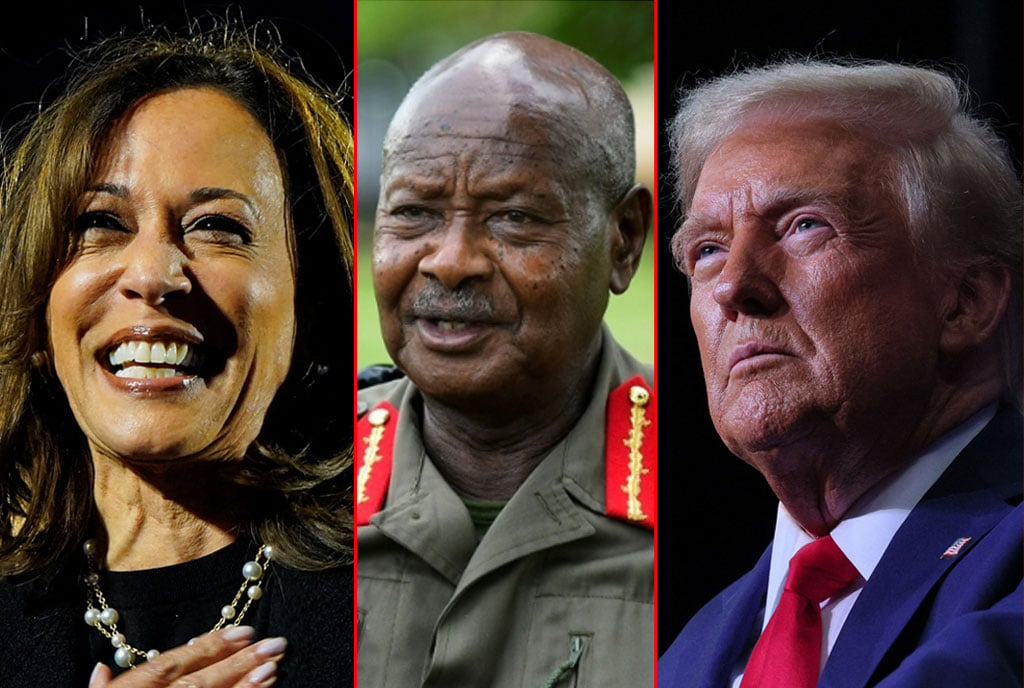
Members of Parliament during a plenary chaired by Speaker Anita Among at Parliament on July 2. Ms Among’s decision to convene plenary sittings across all four corners of the country has opened a can of worms. PHOTO/DAVID LUBOWA.
House Speaker Anita Among’s decision to convene plenary sittings across all four corners of the country has opened a can of worms, with critics describing the attendant expenditure as superfluous.
Mr Joel Ssenyonyi, the Leader of the Opposition in Parliament (LoP), has led the chorus of critics of the plan that was first announced at this year’s State-of-Nation-Address (SONA). Mr Ssenyonyi revealed during Wednesday’s plenary—chaired by Mr Thomas Tayebwa, the Deputy House Speaker—that at least Shs5 billion will be shelled out on each of four regional sittings that have been pencilled in.
What is the hullabaloo all about?
Mr Ssenyonyi has for the two months questioned the processes that okayed the said sittings and what he describes as “colossal sums” that will be expended on Speaker Among’s latest pet project. The inaugural regional plenary is slated to run from August 28 to 30 at the Kaunda Grounds in Gulu District. The LoP has denied knowledge that such sittings were ever cleared by the Parliamentary Commission.
“Who sits and approves these things apart from the Parliamentary Commission, which I am a member of and I don’t know?” he rhetorically asked during Wednesday’s plenary.
The Opposition, through Mr Patrick Nsamba Oshabe (Kassanda North), resurrected the matter on Thursday afternoon, insisting that Mr Tayebwa formally informs lawmakers in plenary on the sittings. The Deputy Speaker deferred the matter to an unspecified date.
“Our role will be to ensure we bring everyone on board and I know there are some MPs who were not happy that I denied them the chance to reply to the Leader of the Opposition [in Parliament], please, these are our issues internally, this shouldn’t be an issue of debate here,” Mr Tayebwa told plenary on Thursday evening.
Mr Tayebwa said: “Under Rule 7 of the General Authority of the Speaker, the Speaker can determine where the sitting can be held.”
The Deputy Speaker proceeded to tell Thursday’s plenary that “this is how we go to Kololo…how we used to go to Serena [Conference Centre]. I can’t remember where we had a motion here, where we first debate and say, ‘we have made a resolution.’”
How about the economics of staging the regional sittings?
It continues to be a classic case of being heavy on questions and light on answers. During the plenary sessions he chaired in the past workweek, Mr Tayebwa did not make good on the promise he made to deliver definitive answers. Instead, he roundly dismissed allegations that Shs5 billion will be spent on propping up each one of the four regional sittings.
“I don’t think we are spending Shs5 billion,” he shot back, adding: “…and I read it is Shs5 billion per day and now the public is saying, ‘you stop those sittings so that we pay interns.’”
So which is which? Who is fooling who? Before, Mr Chris Obore, the House’s director of communications and public affairs, stated that “the sitting in Gulu comes with no additional cost to the taxpayer.” Instead, he further offered, it “comes with so many benefits such as enabling MPs to go and see what it means to live outside Kampala.”
What fallout are we looking at here?
Well, for one, a section of lawmakers from northern Uganda have taken exception to Mr Ssenyonyi’s protestations over the Speaker’s pet project. They have accused the LoP of bias, and even warned that there could be political repercussions when his party, the National Unity Platform (NUP), looks for votes during the 2026 General Election.
“The affinity for [sic] relevance shouldn’t make us fail to think objectively. At least he should allow these sittings to go on,” Ms Faith Nakut (Napak District Woman MP) said this past workweek, adding: “If there is need to save, then [the LoP] will save from the sittings in the next regions.”
The Democratic Party Whip at Parliament, Mr Peter Okot, declined to heed Mr Ssenyonyi’s call. He said “not everything must be seen from the negative side.”
He added: “I would urge the Opposition to take advantage of these regional meetings to make their presence felt. We are meant to check the government in its excesses, so this is an opportunity for the Opposition to shine.”
Mr Ssenyonyi expressed his disappointment that “some of my colleagues in Parliament have decided to trivialise this matter and make it as if it is a personal issue.”
Clearly, we have not heard the last on this matter.
What do people outside parliament think about the whole state of affairs?
Renowned lawyer Dan Wandera Ogalo, who crafted the Private Member’s Bill that the Sixth Parliament enacted to form the Parliamentary Commission, told Sunday Monitor that there is not “any good reason why the Parliament should sit upcountry.”
He added: “I think it is insensitive at the moment when you can’t pay interns. These are people who are going to save our lives. You can’t pay them and the money you want to use is even more than what they want. Parliament must operate as a people’s House, responding to people’s concerns.”
He proceeded to note: “Uganda is a small country. I don’t see that people in Gulu, Mbale, Mbarara are not aware of Parliament, and, therefore, there is a need for Parliament of Uganda to go and sit in those places.”
He added: “If you take me [as an MP] to Gulu, I should be able to hire a room, so rightly I should be able to demand the per diem for me being there…and then you have to carry the machinery and all that is very expensive.”







